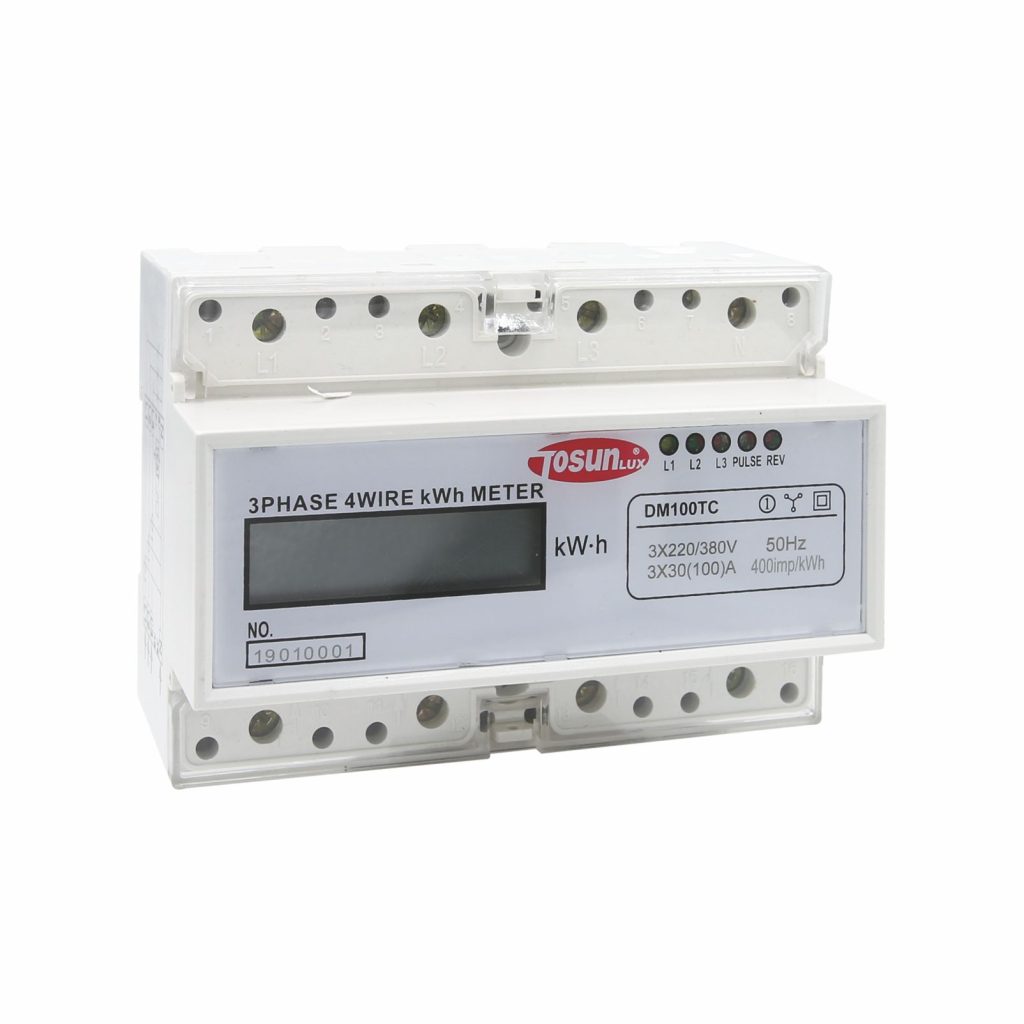What Is an Energy Meter Used For?
Table of Contents
ToggleEnergy meters are versatile devices used to measure and monitor electrical energy consumption in various settings, from residential homes to commercial buildings and industrial facilities.
Energy Meter Application
Residential Energy Monitoring
In households, energy meters are used to track electricity usage and provide accurate billing information. Smart energy monitoring systems, often integrated with modern energy meters, allow homeowners to monitor their energy consumption in real-time, helping them identify areas where they can save energy and reduce costs.
Commercial Building Management
Energy meters play a crucial role in managing energy consumption in commercial buildings, such as offices, retail stores, and schools. By tracking electricity usage, building managers can optimize energy efficiency, identify wasteful practices, and implement cost-saving measures. Advanced energy meter applications can even integrate with building automation systems to automatically adjust lighting, heating, and cooling based on occupancy and energy demand.
Industrial Power Monitoring
In industrial settings, energy meters are used for monitoring and managing power consumption in manufacturing processes, equipment, and machinery. Industrial power monitoring helps facilities managers optimize production, reduce downtime, and identify inefficiencies in energy usage. By closely tracking electricity usage, industries can also detect potential equipment failures, schedule preventive maintenance, and ensure the smooth operation of their facilities.
Submetering and Cost Allocation
Energy meters are used for submetering in multi-tenant buildings, such as apartments, condominiums, and shopping centers. Submetering allows property managers to accurately measure and bill individual tenants for their specific energy consumption, promoting fair cost allocation and encouraging energy-saving behavior.
Renewable Energy Systems
Energy meters are essential components in renewable energy systems, such as solar panels and wind turbines. They help monitor the amount of energy generated, track the performance of the system, and ensure that the energy is being effectively fed into the grid or stored in batteries for later use.
Energy Audits and Benchmarking
Energy meters provide valuable data for conducting energy audits and benchmarking. By analyzing energy consumption patterns and comparing them against industry standards or similar buildings, energy professionals can identify areas for improvement, recommend energy-saving measures, and track progress over time.
How to Choose the Right Energy Meter
When selecting an energy meter for your specific application, consider the following factors:
- Make sure the energy meter is compatible with the voltage and current levels of your electrical system. Choose a meter that can handle the maximum expected voltage and current to avoid damage or inaccurate readings.
- Determine whether you need a single-phase or three-phase energy meter based on your electrical system. Single-phase meters are suitable for most residential and small commercial applications, while three-phase meters are used in larger commercial and industrial settings.
- Consider the accuracy and precision requirements of your energy meter application. For billing purposes, high-accuracy meters with revenue-grade certifications are necessary. For general monitoring, lower-accuracy meters may suffice.
- Choose an energy meter with the appropriate communication capabilities for your needs. Options include pulse output, RS-485, Modbus, and wireless communication protocols like Wi-Fi, Zigbee, or Bluetooth.
Trust Tosunlux for Your Energy Meter Needs
Don’t settle for a one-size-fits-all approach to energy metering. Trust Tosunlux to provide you with the tailored energy meter application that meets your unique requirements.
Contact us today to learn more about how Tosunlux energy meters can help you take control of your energy consumption, reduce costs, and achieve your sustainability goals.
Tel: +86-577-88671000
E-mail: ceo@tosun.com
Skype: tosunelectric
Wechat: +86-139 6881 9286
WhatsApp: +86-139 0587 7291
Address: Room No.1001 Wenzhou Fortune Center,Station Road, Wenzhou, China
REQUEST A QUOTE
WhatsApp us
 : +86-139 0587 7291
: +86-139 0587 7291 English
English Español
Español Русский
Русский Français
Français العربية
العربية Português do Brasil
Português do Brasil Українська
Українська Türkçe
Türkçe Polski
Polski Nederlands
Nederlands Italiano
Italiano Bahasa Indonesia
Bahasa Indonesia हिन्दी
हिन्दी اردو
اردو አማርኛ
አማርኛ Հայերեն
Հայերեն ไทย
ไทย Монгол
Монгол فارسی
فارسی Shqip
Shqip Ελληνικά
Ελληνικά



